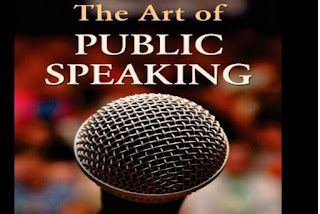PUBLIC SPEAKING TIPS
Engage With Your Audience
hen you speak, try to engage your audience. This makes you feel less isolated as a speaker and keeps everyone involved with your message. If appropriate, ask leading questions targeted to individuals or groups, and encourage people to participate and ask questions.
Keep in mind that some words reduce your power as a speaker. For instance, think about how these sentences sound: "I just want to add that I think we can meet these goals" or "I just think this plan is a good one." The words "just" and "I think" limit your authority and conviction. Don't use them.
A similar word is "actually," as in, "Actually, I'd like to add that we were under budget last quarter." When you use "actually," it conveys a sense of submissiveness or even surprise. Instead, say what things are. "We were under budget last quarter" is clear and direct.
Also, pay attention to how you're speaking. If you're nervous, you might talk quickly. This increases the chances that you'll trip over your words, or say something you don't mean. Force yourself to slow down by breathing deeply. Don't be afraid to gather your thoughts; pauses are an important part of conversation, and they make you sound confident, natural, and authentic.
Finally, avoid reading word-for-word from your notes. Instead, make a list of important points on cue cards, or, as you get better at public speaking, try to memorize what you're going to say – you can still refer back to your cue cards when you need them.
hen you speak, try to engage your audience. This makes you feel less isolated as a speaker and keeps everyone involved with your message. If appropriate, ask leading questions targeted to individuals or groups, and encourage people to participate and ask questions.
Keep in mind that some words reduce your power as a speaker. For instance, think about how these sentences sound: "I just want to add that I think we can meet these goals" or "I just think this plan is a good one." The words "just" and "I think" limit your authority and conviction. Don't use them.
A similar word is "actually," as in, "Actually, I'd like to add that we were under budget last quarter." When you use "actually," it conveys a sense of submissiveness or even surprise. Instead, say what things are. "We were under budget last quarter" is clear and direct.
Also, pay attention to how you're speaking. If you're nervous, you might talk quickly. This increases the chances that you'll trip over your words, or say something you don't mean. Force yourself to slow down by breathing deeply. Don't be afraid to gather your thoughts; pauses are an important part of conversation, and they make you sound confident, natural, and authentic.
Finally, avoid reading word-for-word from your notes. Instead, make a list of important points on cue cards, or, as you get better at public speaking, try to memorize what you're going to say – you can still refer back to your cue cards when you need them.

Comments
Post a Comment